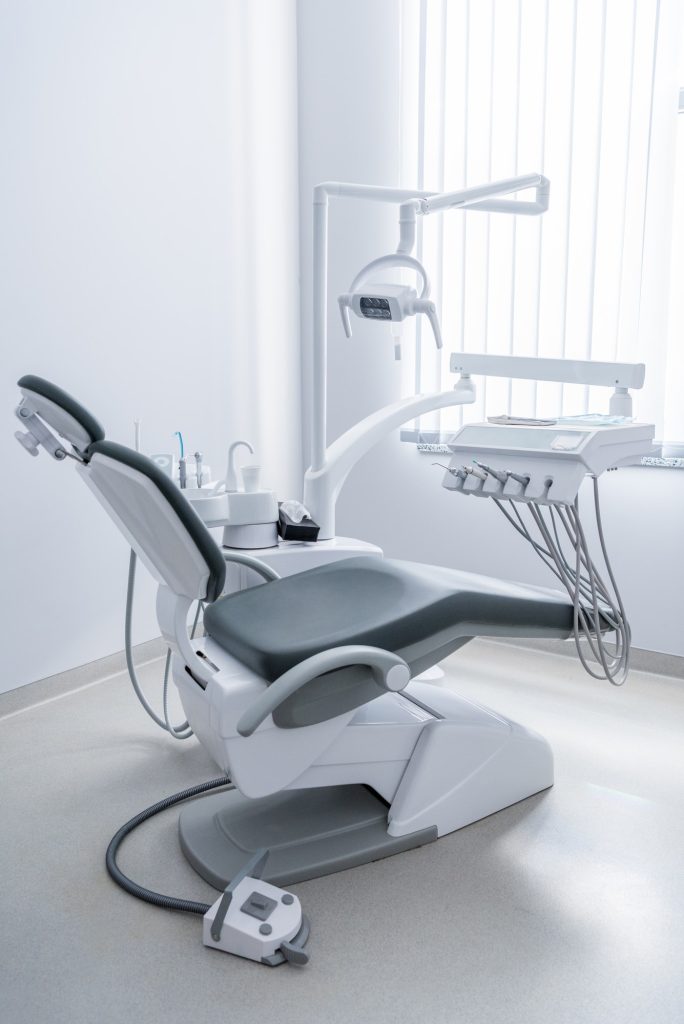[et_pb_section fb_built=”1″ _builder_version=”4.9.4″ _module_preset=”default”][et_pb_row _builder_version=”4.9.4″ _module_preset=”default”][et_pb_column type=”4_4″ _builder_version=”4.9.4″ _module_preset=”default”][et_pb_text _builder_version=”4.9.4″ _module_preset=”default”]
Decay and damage to your tooth can lead to a cavity or infection. If the infection reaches the nerve or blood vessels inside your tooth, you may experience swelling and pain. This is a root canal infection. Your dentist will perform a root canal treatment to stop the infection and save your tooth from extraction.
What Are the Symptoms of a Root Canal Infection?
You may not feel pain or see swelling at the start of your infection. However, over time as the infection spreads, your pain will increase. A root canal infection can also lead to an abscess in your mouth. It’s important to receive treatment before the infection spreads and impacts your oral health.
Common symptoms of a root canal infection include:
- Tooth sensitivity to hot or cold food and drinks that persists after eating or drinking
- Feeling pain when you bite down or chew with the tooth
- Your tooth feels loose in your mouth
- Noticing discolouration or darkening of the tooth
- Your gums may feel swollen or tender
- Noticing swelling around your cheek and jaw
- Pus coming from an infected tooth
If you experience any of these symptoms, contact your dentist immediately. They will examine your oral health and may suggest a root canal treatment.
When Do You Need a Root Canal?
You can save your damaged or infected tooth by having root canal therapy. You need root canal therapy if your tooth has been damaged from injury, wear and tear, previous dental work, or gum disease. Cracked fillings and infections in your tooth also require a root canal treatment.
These conditions can damage your dental pulp, leaving it prone to bacterial growth. Bacterial growth leads to infection and the development of an abscess. The abscess forms at the end of your tooth’s root and is filled with pus.
 A root canal is performed to clear the infection and save your tooth. Keeping your teeth is important for the stability of your dental arch, preventing bone resorption, and avoiding tooth misalignment.
A root canal is performed to clear the infection and save your tooth. Keeping your teeth is important for the stability of your dental arch, preventing bone resorption, and avoiding tooth misalignment.
If your tooth has to be extracted, it will need to be replaced through other dental procedures, such as dentures, bridges, or dental implants. Artificial teeth don’t work as well for chewing as your natural teeth. A root canal procedure gives you the best chance to keep your tooth.
Complications Due to Root Canal Infection
In addition to being extremely painful, an infected root canal can have serious consequences for your general and oral health. If left untreated, a root canal infection can progress to pulp necrosis.
Pulp necrosis is the final stage of pulpitis. It is an irreversible condition that occurs when the pulp becomes so infected that the blood supply is compromised, and the tissue dies.
Pulp necrosis can lead to tooth loss, jawbone deterioration, chronic sinus infections, and advanced gum disease. It can also cause the infection to spread to other parts of your body, and in extreme cases, lead to septicaemia.
How to Treat a Root Canal Infection?
Root canal treatment involves removing the pulp infection, cleaning the pulp chamber, and sealing the crown.
Before your dentist begins the root canal treatment, they will inject a local anaesthetic into the affected area to numb your mouth and ensure that you do not feel any discomfort during the procedure.
Your dentist will use a bur to open the top of the tooth’s crown to access the pulp chamber. They then remove the infected tissue and sterilise the affected root canals. Depending on the severity of the root canal infection, your dentist may inject an antibiotic solution into the cavity to prevent the infection from recurring.
The pulp chamber is smoothed and filled with a natural latex compound called gutta-percha. Then the crown is sealed with a tooth-coloured composite resin filling. If the tooth is severely damaged and does not have the structural strength to protect the tooth’s interior, your dentist will need to cap the tooth with a dental crown.
To prepare your tooth for the crown, your dentist files and shapes the treated tooth into a conical shape to accommodate the restoration. They then apply dental putty to take impressions which are then sent to an off-site lab where the dental crown is fabricated. Once the crown is ready, you’ll return to the practice to have it cemented in place.
Post Treatment Care
Your dentist will instruct you on how to care for your tooth immediately after your root canal. Your mouth may feel tender or sore in the area for a couple of days as it heals. You can take paracetamol for any discomfort, and your dentist may prescribe stronger pain medication if necessary.
You will have a follow-up appointment with your dentist to check on your healing progress and ensure the tooth is healthy. If you experience severe discomfort that lasts more than a few days, see swelling inside your mouth, your bite feels uneven, or your temporary crown is loose, contact your dentist immediately.
It’s important to maintain good oral hygiene after your root canal. Your dentist may advise you to swish your mouth with a saline treatment to prevent infection. Avoid consuming acidic, sugary, and extremely hot or cold foods and drinks in the days following your treatment.
Radiant Smiles Dental Performs Root Canal Treatments
If you’re experiencing swelling or pain in your mouth, you may have a root canal infection. A dentist can examine your mouth and advise you on the best treatment to maintain your oral health.
Radiant Smiles Dental uses high-quality equipment to perform root canal treatments for our patients in Victoria. Contact our practice on (03) 9000 0537 to learn more about our services.
[/et_pb_text][/et_pb_column][/et_pb_row][/et_pb_section]
 Now
Now
















